Awards
Elisabete Martins
Vacancy at Niederrhein University of Applied Sciences / NIERS Institute for Regional and Structural Research
Attached please find the announcement of the vacancy at Niederrhein University of Applied Sciences / NIERS Institute for Regional and Structural Research.
RSPP Call for Paper | Special Issue on Spatial Resilience and the Border Regions of Europe
RSPP Call for Paper
Special Issue on Spatial Resilience and the Border Regions of Europe
One of the least exploited research directions in regional science is the investigation of spatial patterns in relation to resilience, as well as of the role that geographical positioning, respectively the interaction between space and socio-economic activities, play in fostering and enhancing resilience, especially in border regions.
Some key research questions arise as being particularly important for development policies: Are there spatial differences in the resilience outcomes, and have various regions different responses to economic shocks along with their ability to adapt to new economic circumstances, depending on the geographical positioning of a region? Are regions with external borders less resilient to economic, environmental, social or political shocks than regions without any national borders, or with borders that are internal to the EU? Is the impact of a shock on border regions different from the impact on domestic regions? Or does the impact differ on peripheral regions vs. central ones? Can cross-border cooperation reduce border effects and transform borders from a disadvantage into an opportunity? What role do physical, administrative, economic, cultural, institutional, or political barriers have on the resilience of border regions?
This special issue on Spatial Resilience and the Border Regions of Europe aims at responding to some of key challenges for border regions, collecting a set of studies on:
- The principles and effects of spatial resilience (be it cities, regions, rural areas, spatial labor markets, migration, transport systems, public facilities etc.);
- How to better connect and inter-connect the territorial dimension with the economic, social or the ecological issues of resilience in the borderline regions (both external and internal);
- The systemic vulnerability, territorial planning, growth patterns, urban development, quality of life and demographic aspects of cities in the border regions;
- The core-periphery structural differentiation or evolutionary paradigms connected with the resilience capacity;
- Border effects on resilience and the role of cross-border cooperation;
- New approaches on spatial dynamics, from the perspective of the equilibrating forces inherent in regional and urban systems.
Case studies on Romania, Bulgaria, Georgia, Armenia, Belarus, Azerbaijan, Ukraine, Poland, Hungary, Estonia, Leetonia, Latvia, Greece, Turkey, Russia and Finland, but also on the internal “borders” of EU will be more that welcomed.
Papers should be submitted to the regular review process of the journal (https://rsaiconnect.onlinelibrary.wiley.com/journal/17577802) until December 20th of 2019.
The coordinators of the Special Issue:
Gabriela Carmen PASCARIU (gcpas@uaic.ro)
Karima KOURTIT (k.kourtit@jads.nl)
Ramona TIGANASU (ramona.frunza@uaic.ro)
The New Issue of Regional Statistics is already Available!
We are pleased to inform you that a new issue of the Regional Statistics has been released and now it’s avaiable online.
http://www.ksh.hu/docs/hun/xftp/terstat/2019/eterstat1901.pdf
REGIONAL STATISTICS, 2019, VOL 9, No 1.
STUDIES
Fernando Delbianco–Andrés Fioriti–Fernando Tohmé: Quantifying worldwide economic distress
http://www.ksh.hu/docs/hun/xftp/terstat/2019/rs090108.pdf
Bacsosz Sztavrosz: Analysis of the geographical diversification of financial instruments
http://www.ksh.hu/docs/hun/xftp/terstat/2019/rs090110.pdf
Iwona Müller-Frączek: Dynamic measurement of complex phenomena in assessing the Europe 2020 strategy effects
http://www.ksh.hu/docs/hun/xftp/terstat/2019/rs090107.pdf
Yan Song– Arjan van Timmeren–Alexander Wandl: A literature review and categorisation of sustainability-aimed urban metabolism indicators: a context,
indicator, mechanism, outcome analysis
http://www.ksh.hu/docs/hun/xftp/terstat/2019/rs090103.pdf
Maria do Carmo Dias Bueno–Ricardo Neves de Souza Lima: The degree of urbanisation in Brazil
http://www.ksh.hu/docs/hun/xftp/terstat/2019/rs090101.pdf
Buddhadeb Ghosh–Sankar Narayan Samanta–Nilachal Ray: Deprivation amidst affluence in ‘rising India’: Impacts of the National Rural Employment Guarantee Scheme
http://www.ksh.hu/docs/hun/xftp/terstat/2019/rs090102.pdf
Semra Türkan–Gamze Ozel: Determinants of electricity consumption based on the NUTS 2 regions of Turkey: A panel data approach
http://www.ksh.hu/docs/hun/xftp/terstat/2019/rs090105.pdf
Tamás Sikos T.: Changes in the retail sector in Budapest, 1989–2017
http://www.ksh.hu/docs/hun/xftp/terstat/2019/rs090104.pdf
Gábor Lados–Gábor Hegedűs: Return migration and identity change: A Hungarian case study
http://www.ksh.hu/docs/hun/xftp/terstat/2019/rs090109.pdf
METHODOLOGICAL ISSUES
Marie Haldorson: High demand for local area level statistics – How do National Statistical Institutes respond?
http://www.ksh.hu/docs/hun/xftp/terstat/2019/rs090106.pdf
Join us to our social networking sites:
Call for RSAI Programs 2020
NURTURING TALENT 2020
The RSAI aims to continue promoting the development of Regional Science by nurturing new talent in 2020. The council has therefore pledged resources to co-finance workshops and summer institutes intended to provide substantive training to pre-doctoral researchers, including the presentation of their work and receiving feedback from senior scholars and their peers. It is expected that the selected workshops and institutes will have considerable international geographical coverage.
Organizers of workshops and summer schools fulfilling the above aims are encouraged to submit a two-page case for support within November 4, 2019 to the RSAI secretariat (rsai@apdr.pt). Individuals are encouraged to consult with their national and supranational sections to allow better coordination among different initiatives.
All applications will be reviewed by the Committee and will have to be formally approved by the RSAI Council. Their decision will be final.
BUILDING BRIDGES IN REGIONAL SCIENCE
2020 conference participation support
The RSAI facilitates the participation of researchers from low-income and lower-middle-income economies (as defined by the World Bank: https://data.worldbank.org/about/country-and-lending-groups#Low_income) at the five largest Regional Science Conferences in 2020: LARSA, PRSCO, ERSA, NARSC, and the World Congress.
RSAI will provide a subsidy up to USD 500 (or the equivalent in other currencies) to selected researchers. This is likely to cover the conference registration fee and some local travel costs. Alternative means of financing will have to be sought for international travel and accommodation.
Only one author of a submitted paper presentation proposal can apply for a subsidy.
Interested researchers should upload a two-page CV plus a one-page motivation –including a budget with proposed sources of funding of the conference-related registration, travel and accommodation costs – within 30 days of receiving confirmation of the acceptance of the researcher’s abstract by the conference organizers.
Applicants should have had a paper accepted for presentation at the conference.
All applications, to be submitted at the following link:
https://www.emailmeform.com/builder/form/4Qb1O9ro1K0LuWIeG
will be reviewed by the Committee and will have to be formally approved by the RSAI Council. Their decision will be final.
Nominations for RSAI Councilor-at-large
Dear RSAI members,
By RSAI Constitution, nominations for Councilors-at-large “shall be made by the Council after solicitation of suggestions from the members of the Association”. At the end of 2019, the position held by Prof. Laurie Schintler (GMU) will expire; we therefore inform that the proposals for one councilor-at-large can be sent to rsai@apdr.pt within September 1, 2019. Candidatures will have to include a professional CV and a photo.
The election of one councilor-at-large for the period 2020-2022 will take place electronically by RSAI members during the month of September 2019.
Best regards,
Andrea Caragliu
RSAI Executive Director
Call for papers | NECTAR Cluster 6 (Accessibility) international workshop, Technical University of Munich, Germany, 12-13 December 2019
Please find enclosed the CfP for the Cluster 6 workshop on "The role Accessibility in times of Technological Innovation, (Re-)Urbanization and Climate Change".
This workshop will take place in Munich, 12-13 December 2019 at the Technical University of Munich, Germany.
RSPP Call for Paper | Special Issue on Understanding People's Views on Immigration
RSPP Call for Paper
Special Issue on Understanding People's Views on Immigration
Guest Editor: Dr. Bruce Newbold, McMaster University
Aims and Scope of the Special Edition
In an era when globalization and economic integration has facilitated movement from poor to rich countries, immigration has emerged as one of the most controversial political issues. International migration has long been associated with economic motivations and individual responses. While economic considerations continue to motivate a portion of international movements, war, civil strife, inequalities in health, well-being, and/or income across space drive migration. But the movement of individuals at the global scale has been increasingly challenged by the rise of populism. In part, the rise of populism has been driven by a sense amongst many in the developed world that they see less opportunity for themselves than in the past. These deep societal and labor market changes bring with them real fears and real costs which have manifested in the rise of new populist parties in countries, along with anti-immigrant policies and programs. Arguably, populism has shifted how much of the globe views immigration.
We invite submissions for a forthcoming special edition of Regional Science Policy and Practice on the topic of Understanding People’s Views on Immigration. Both empirical and theoretical papers will be considered. Please submit full papers via the RSPP online submission portal. The deadline for submission is December 15, 2019.
Submission instructions
Authors are encouraged to RSPP’s online submission process. All submissions will go through the journal’s standard peer-review process. For guidelines to prepare your manuscript and for manuscript submission please visit: https://rsaiconnect.onlinelibrary.wiley.com/journal/17577802
For questions regarding this special issue, please contact Dr. Bruce Newbold (newbold@mcmaster.ca)
Winners Martin Beckmann Annual Award for the best paper published in Papers in Regional Science in 2018
RSAI has the great pleasure to announce that the jury consisting of Janice Madden, Carlos Azzoni and Erik Verhoef chose the articles:
Tobias D. Ketterer and Andrés Rodríguez‐Pose, Institutions vs. ‘first-nature’ geography: What drives economic growth in Europe's regions?, published in Volume 97, Issue S1, March 2018, Pages S25-S62;
Motivation: Through an elegant scientific approach, the paper aims to investigate whether differences in institutional and ‘first nature’ geographical conditions have affected economic growth in Europe’s regions in the period 1995–2009. The analysis lies on a newly developed dataset including regional quality of government indicators and geographical characteristics, and arrives to the conclusion that regional institutional conditions – and, particularly, government effectiveness and the fight against corruption – play an important role in shaping regional economic growth prospects.
and
Wen Chen, Bart Los, Philip McCann, Raquel Ortega‐Argilés, Mark Thissen and Frank van Oort, The continental divide? Economic exposure to Brexit in regions and countries on both sides of The Channel, published in Volume97, Issue1, Special Issue: The trade, geography and regional implications of Brexit, March 2018, Pages 25-54,
Motivation: The paper tackles an important topic like Brexit, and studies the degree to which EU regions and countries are exposed to negative trade‐related consequences of Brexit. We develop an index of this exposure, which incorporates all effects due to geographically fragmented production processes within the UK, the EU and beyond. The paper demonstrates that UK regions are far more exposed than regions in other countries and that this imbalance may influence the outcomes of the negotiations between the UK and the EU.
as the winners of the Martin Beckmann Prize as the best paper published in Papers in Regional Science in 2018.
Call for applications | The Peter Nijkamp Research Encouragement Award
Call for applications
The Peter Nijkamp Research Encouragement Award
The award recognizes the outstanding potential of a mid-career researcher from a nation in the developing world in which there is a section of RSAI. Conditions for applications are:
Nominees will be judged in part on the evaluation of the paper and in part on an evaluation of the research track record and performance (CV).
The winner(s) will receive support, up to 750 Euro, to participate in a Supra-Regional meeting or in the World Congress, at which the paper will be presented.
The jury will comprise the Immediate Past-President of RSAI as Chair, an Editor of Papers in Regional Science, and two RSAI Fellows.
Deadline for the applications: November 30, 2019
(An eligible mid-career researcher from an eligible developing nation may submit a paper and their CV to the RSAI Executive Secretary for consideration for the Award at any time up to the end of November of that year).
The ERSA Prize in Regional Science 2019 is unveiled
|
About Us
The Regional Science Association International (RSAI), founded in 1954, is an international community of scholars interested in the regional impacts of national or global processes of economic and social change.

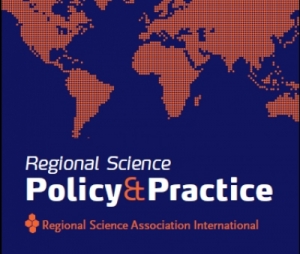
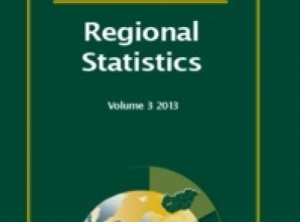
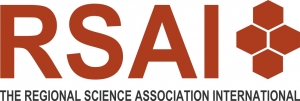
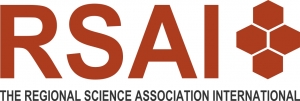
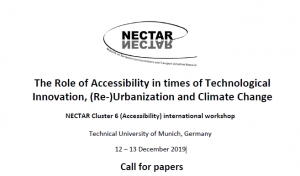
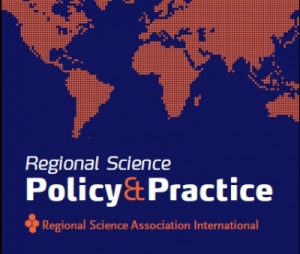




 ERSA and the Jury of the ERSA Prize Committee are pleased to announce that this year’s prize recognizes
ERSA and the Jury of the ERSA Prize Committee are pleased to announce that this year’s prize recognizes 